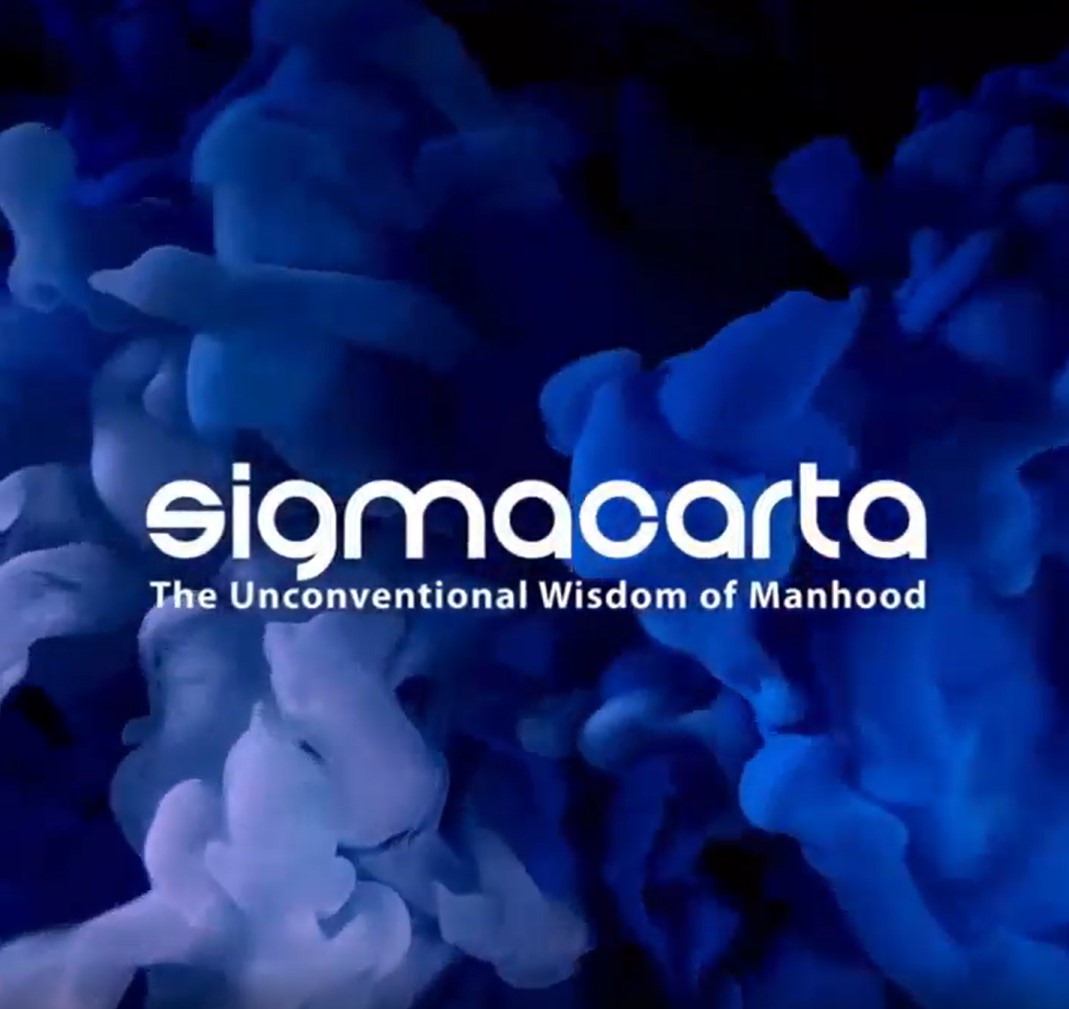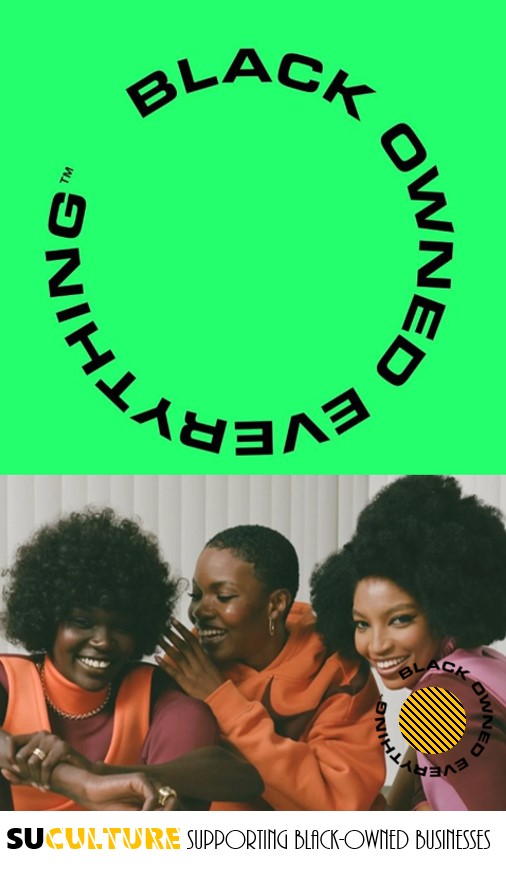-
AuthorPosts
-
-
The Greatest 100+ African
Americans:
By no means a comprehensive list when Abraham H. Galloway (State Senator), Susie King Taylor, Mary Ellen Pleasant, Bessie Coleman, Jesse LeRoy Brown and William H. Hastie are considered; however, ‘100 Greatest African Americans’ is a revealing biographical encyclopedia, by scholar Molefi K. Asante which aims to encapsulate, for posterity, the trajectory/stories, struggles, and more importantly, the accomplishment of some of the most remarkable individuals in American history, who, notably, distinguished themselves in the face of adversity and the fight for social justice and equality.
For a comprehensive list on the Greatest 100 African Americans, click on the below image;
Maya Angelou: (April 4, 1928 – May 28, 2014).

A distinguished American activist, poet, and essayist, Maya Angelou had an accomplished career as Hollywood’s first female director of African descent, a composer, editor, and playwright. As a civil rights activist, Angelou had the opportunity to work for Dr. Martin Luther King Jr, as the northern coordinator for King’s Southern Christian Leadership Conference (SCLC), as well as working with Malcolm X.
Influenced by her work in the civil rights movement in the 50’s and 60’s, Angelou moved to Cairo, Egypt, and then onwards to Ghana West Africa, in 1962, where she lectured at the University of Ghana, worked as a freelance writer for the Ghanaian Times, the Ghanaian Broadcasting Corporation, and, was a feature editor at the African Review.
As an academic, she served as the Reynolds Professor of American Studies at Wake Forest University, served on two presidential committees – for Gerald Ford in 1975 and for Jimmy Carter in 1977. In 1993 Angelou received an invitation to write, and read the inaugural poem for President Bill Clinton, and received the National Medal of Arts. In 2010, she was awarded the Presidential Medal of Freedom by President Barack Obama, the highest civilian honor in the United States.
Maya Angelou’s most famous work, I Know Why the Caged Bird Sings (1969), deals with trauma, and experiences during her childhood years.
Angelou was a widely-read and prolific writer, and was greatly influenced by authors, such as W. E. B. Du Bois, and Paul Lawrence Dunbar.
For here extensive work, depicting the strength of women, the human spirit and Black beauty Angelou was the recipient of over 50 honorary degrees in her life-time.
Maya Angelou died at the age of 86 in 2014.
Nat Turner: (October 2, 1800 – November 11, 1831)

A Revolt to Remember: The Legacy of Nat Turner.
Nat Turner is widely regarded as one of the most inspirational, and charismatic African American leaders.
Nat Turner’s planned insurrection, and agitation for emancipation, was one of the most systematic, ruthless and most far-reaching in American history. It kindled the culture and fear of the African American resistance in 1831 Virginia, that ultimately spread throughout the rest of Southern United States. It also, reputedly, expedited the coming of the American Civil War.
Nat Turner’s insurgence put an end to the Southern myth that African American’s were either happy with their lot and experience, or too servile to react and launch an armed revolt.
Harriet Tubman: (March 1822 – March 10, 1913)
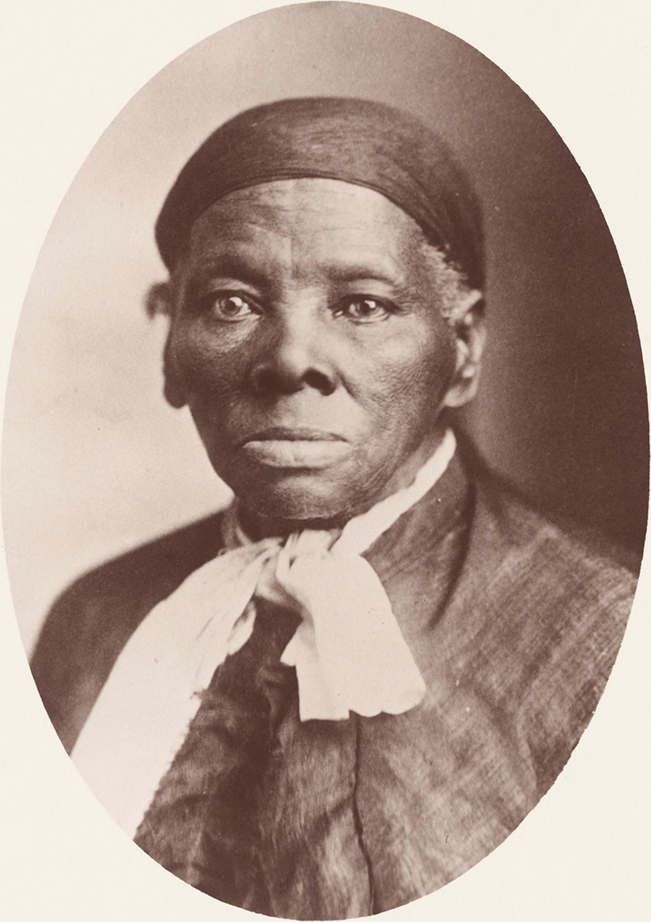
Legacy:
Harriet Tubman was an African American abolitionist, suffragist and political activist.
Over a period of 11 years, between 1849 and 1860, Tubman was known to have made approximately 13 rescue expeditions, liberating over seven dozen African American families, and children from captivity.
At the beginning of the American Civil War in 1861, Tubman saw a Union victory as a vital step toward the abolition, and the emancipation of African Americans. As a result, using her skill and experience, Tubman played an advisory role to the Union soldiers, conducted several joint rescue missions, mapped the unfamiliar southern American terrain, executing successful assaults on Confederate troops and liberated more than 750 African Americans in the process.
In early 1859, through the ownership of land bought from the abolitionist Republican U.S. Senator William H. Seward in New York, Tubman was able to offer a safe haven for her family, and members of the wider African American community seeking refuge and a better life – donating part of the land for the development of a hospice for elderly African American men and women.
Her endless contributions to rights and social justice continued with Tubman’s suffragist activism, working tirelessly to promote the cause of women’s rights.
Honors and commemorations:
Posthumously, Tubman was inducted into the United States National Women’s Hall of Fame in 1973, and the Military Intelligence Hall of Fame in 2019.
Tubman died aged 93, in 1913.
William Edward Burghardt Du Bois: (February 23, 1868 – August 27, 1963)
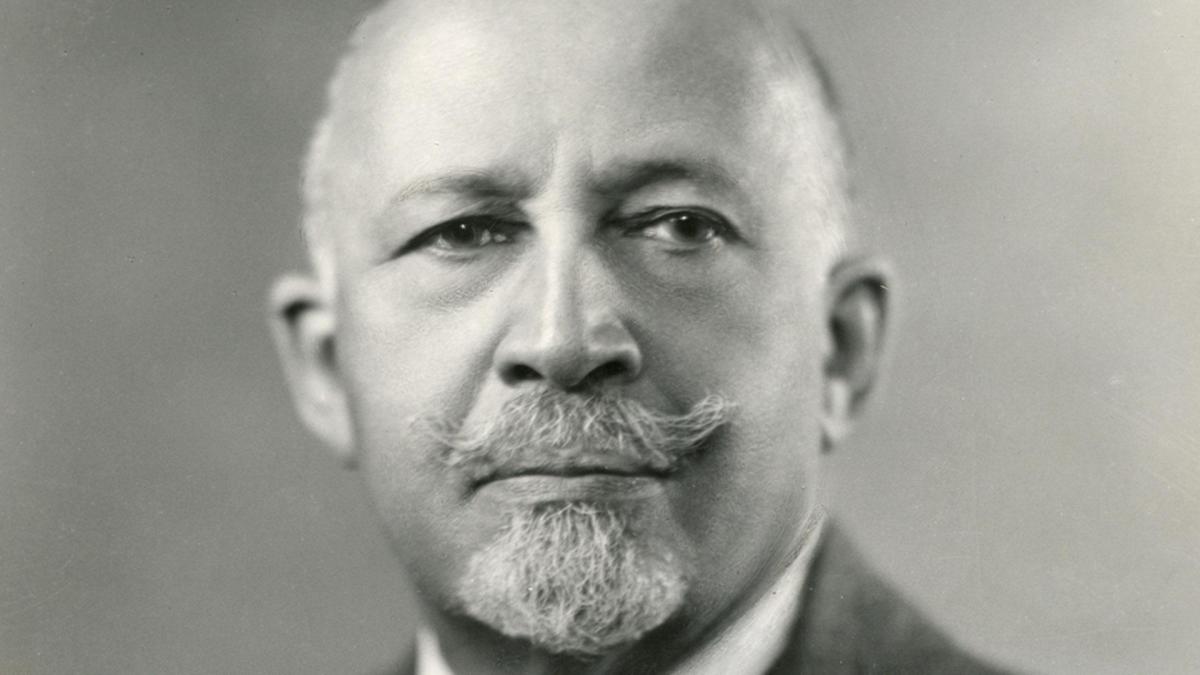
William Edward Burghardt Du Bois – (W.E.B Du Bois), was an African American sociologist, scholar, civil rights activist, Pan-Africanist, author and editor.
W.E.B. Du Bois was a founding member of the NAACP, in 1909, was instrumental to developing and submitting the 96-page petition on African American fundamental rights, to the newly established United Nations, in 1947, a year before the adoption of the Universal Declaration of Human Rights, and serving as a consultant to the UN founding convention (1945).
Du Bois’s Black Nationalism followed numerous active lines – the most preeminent being his pioneering advocacy for Pan-Africanism; the principle that all people of African descent, no matter where they are from, have a mutual/common interest and should pull resources, for their inherent and collective good.
Notably, Du Bois was a pioneer of the initial Pan-African Conference held in London, in 1900 and the architect of subsequent Pan-African symposiums, held between the period of 1919 and 1927.
As a sociologist and academic, Du Bois articulated an ideology of cultural nationalism, encouraging the progress, development and expansion of Black literature and Art. Du Bois believed in African Americans (and the collective totality of Africans in the diaspora, developing a ‘Black Economy’ or separate “group economy” of ‘producers’ and ‘consumers’ to circumvent economic discrimination, and to promote self-sufficiency. This doctrine played a huge role during the economic depression of the 1930’s, within the African American community.
At approximately 93 years of age, Du Bois embarked on an ambitious project to develop a new encyclopedia on the African diaspora. Du Bois was granted Ghanaian citizenship in 1961, and died in Ghana on Aug. 27, 1963.
Frederick Douglass: (February 1817 – February 20, 1895)
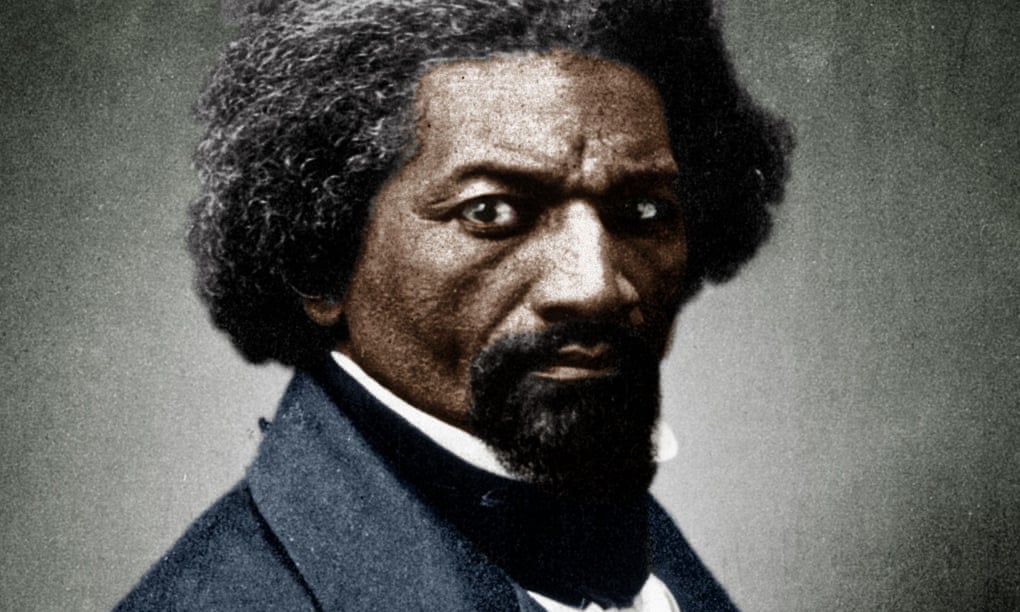
Frederick Douglass was an African American abolitionist, author, orator and newspaper publisher who fought for social justice and equity in the pre and post-civil war United States.
An active member of several civil rights organisations, Douglass traveled the United States promoting the abolition and emancipation agenda – that the belief serfdom was a moral wrong should be fought through nonviolent means.
In the spring of 1847, and investing his own savings, Douglass established the first newspaper publishing house owned by an African American in the United States, namely, The North Star.
Douglass subsequently bought and established three other newspaper publishing houses – the Frederick Douglass’ Paper, in 1851, the Douglass’ Monthly, in 1859 and the New National Era, in 1870.
Douglass was active politically and promoted the philosophy premised on the principle that through active participation and skilled constitutional interpretation, the U.S. Constitution could be used as an instrument to gain social parity, and the fight for emancipation.
At the start of the Civil War, Douglass actively advocated for the inclusion of African American’s as soldiers in the Union army, in which notably, his sons Lewis and Charles served.
In 1863, Douglass was invited to the White House to meet with then-President Abraham Lincoln to discuss and advocate better income/conditions for African American soldiers. Douglass will subsequently meet Lincoln on several other occasions in 1864 at the White House, to discuss strategies on the rights and social enhancement of African Americans.
The Emancipation Proclamation and the victory of the American Civil War offered a new reality for millions of African Americans, creating a new window of opportunity for Douglass to secure additional rights for the community of African Americans. He assiduously supported the Fourteenth Amendment, which granted African Americans citizenship, but knew that these newly acquired rights/status needed to be protected by universal suffrage – consolidating the inherent strength of African Americans as a voting bloc.
Between 1874 and 1891, Douglass was appointed to several private and public offices such as becoming the president of the Freedman’s Bank; becoming the first U.S. marshal of African descent in 1877; the consul general to the Republic of Haiti in 1889, and served on the board of trustees, at Howard University between 1871 to 1895.
Douglass’s contributions to the social-mobility of the African American community, through his writings and speeches challenged the status-quo and racial stereotypes of African Americans.
His distinguished achievements challenged the exaggerated stereotypes of African Americans as a class of people lacking intellectual depth, vigour and acuity.
On February 20, 1895, Frederick Douglass died at the age of 77.
Shirley Chisholm: (November 30, 1924 – January 1, 2005)
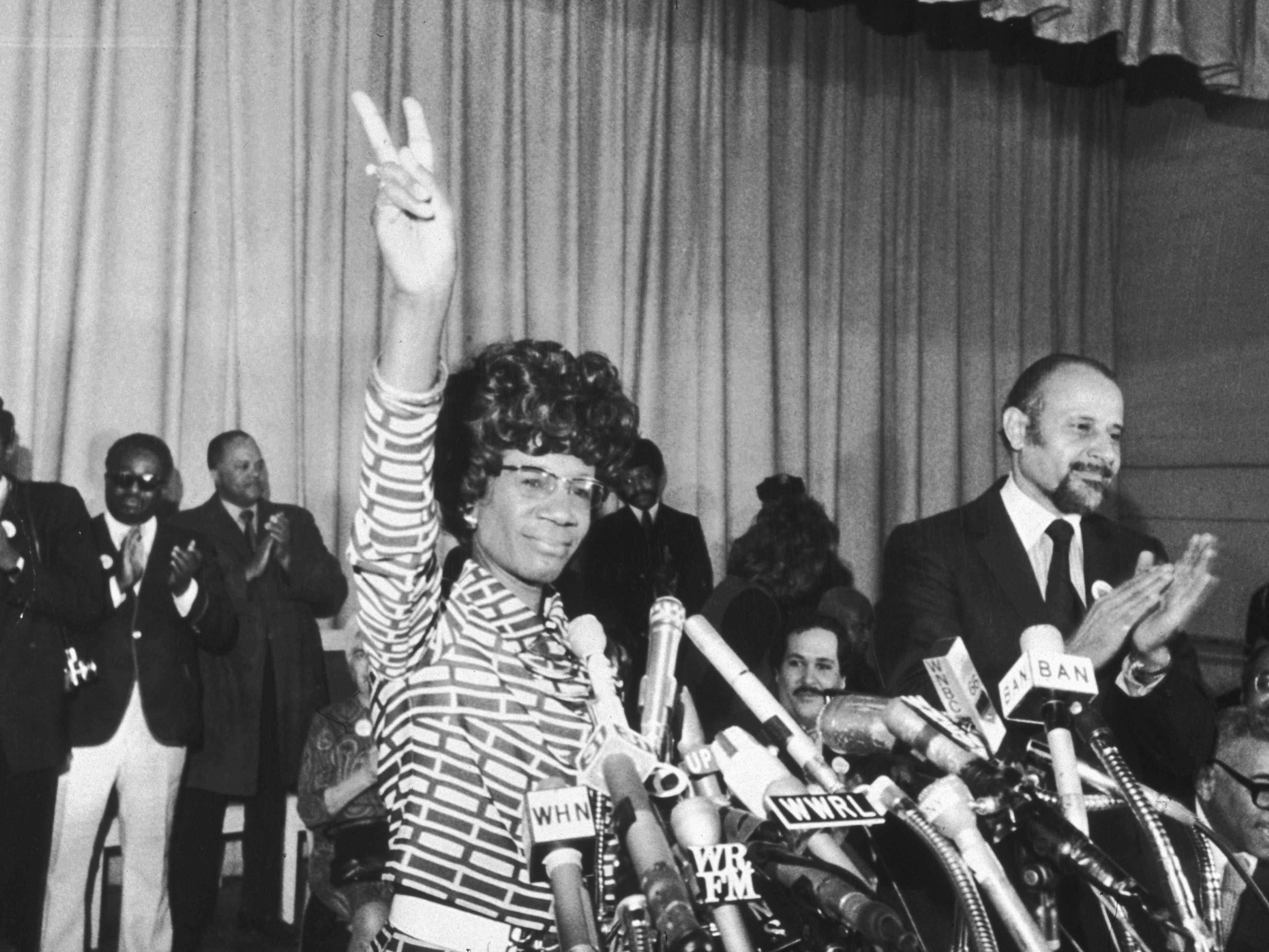
Shirley Chisholm was an African American politician, academic, and author. She was the first African American woman in the United States Congress (1968), and the first woman, and African American to run for President of the United States (1972). Her fundamental ideology, which relates to her autobiography of the same name, entitled — Unbought and Unbossed — demonstrates her outspoken advocacy for women, African American women and minorities throughout her consecutive seven terms in the U.S. House of Representatives.
Chisholm was a member of the NAACP, the Urban League and became the first woman of African descent, and second woman, to serve in the powerful U.S. House Rules Committee. Chisholm became the co-founder of the National Women’s Political Caucus in 1971.
Chisholm’s pursuit for the 1972 presidential nomination was marred by prejudice and bigotry. She was effectively excluded from involvement in televised primary debates, and, following a lawsuit, was granted access to just one speech. Despite an under-financed and contentious campaign, her trials and perseverance increased her popularity amongst students, women, and minorities – which became famously known as the “Chisholm Trail”.
Legacy:
Chisholm was a one-woman forerunner in modern U.S. progressive politics, and in 2008 her legacy came into renewed focus during the Democratic presidential primaries for Barack Obama and Hillary Clinton. Notably, President Obama became the African-American president, and Clinton the likely nominee with the potential to become the first American female president – crediting Chisholm‘s politics and 1972 campaign as having set the tone, and established the foundations for both.
Chisholm has had major influence on other women in politics, among them the first female Vice President Kamala Harris – who launched her presidential campaign 47 years exactly after Chisholm’s 1972 presidential campaign.
Guion Stewart Bluford Jr.: (November 22, 1942 – Present).
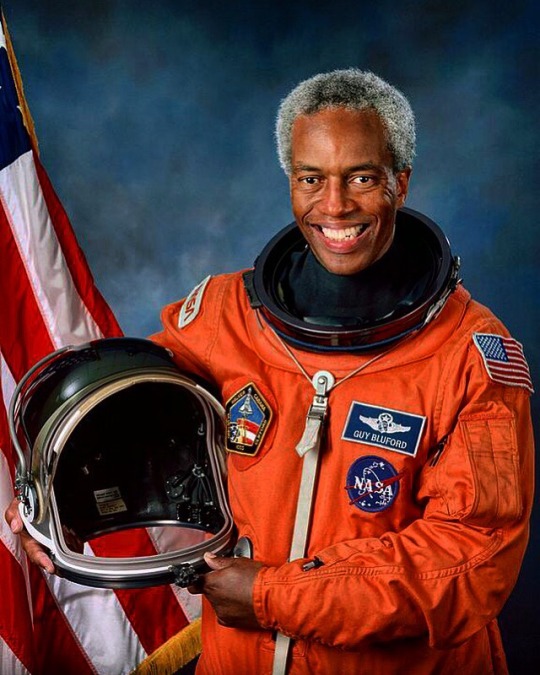
Guion Bluford is a distinguished American aerospace engineer, NASA astronaut, U.S. Air Force officer (rtd) and fighter pilot. Bluford is the first African American, as well as the second person of African heritage on a space mission.
In 1978, Bluford became one of the 35 individuals selected from approximately 10,000 applicants in NASA’s initial competitive academic evaluation, to become space shuttle astronauts.
Bluford’s first mission was the STS-8. Bluford subsequently served on the crew of STS-61-A, and the German D-1 Spacelab mission, which launched from the Kennedy Space Center. Bluford also served on the crew of STS-39. With the success of his fourth flight, Bluford had logged over 688 hours in space.
Bluford is the recipient of numerous awards and recognitions, and was inducted into the International Space Hall of Fame, in 1997 and the U.S. Astronaut Hall of Fame in 2010.
Kenneth Bancroft Clark (July 14, 1914 – May 1, 2005); and Mamie Phipps Clark (April 18, 1917 – August 11, 1983).
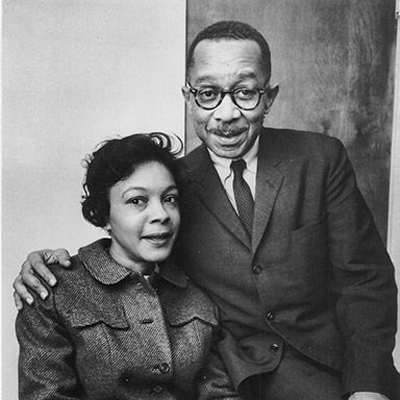
Kenneth and Mamie Clark were pioneering African American psychologists who as a married couple in the field of science and research, conducted pioneering scientific study on the development of consciousness of self, and self-identification in African American children; and the impact of racial segregation on children in the United States.
Legacy:
Kenneth and Mamie Clark testified in two important American cases, Briggs v. Elliott (1952), and, Brown v. Board of Education (1954) as expert witnesses. Their research, contributed to the U.S. Supreme Court decision determining that de jure (legal) racial segregation in public education was unconstitutional. The decision, according to the U.S. Supreme Court in Brown v. Board of Education was, verbatim;
“To separate them/children from others of similar age and qualifications solely because of their race generates a feeling of inferiority as to their status in the community that may affect their hearts and minds in a way unlikely to ever be undone.”
Kenneth and Mamie Clark subsequently founded an organisation to improve the academic, extracurricular, and professional opportunities of African Americans in New York.
Kenneth Clark became the first African American to become president of the American Psychological Association.
Thurgood Marshall: (July 2, 1908 – January 24, 1993)
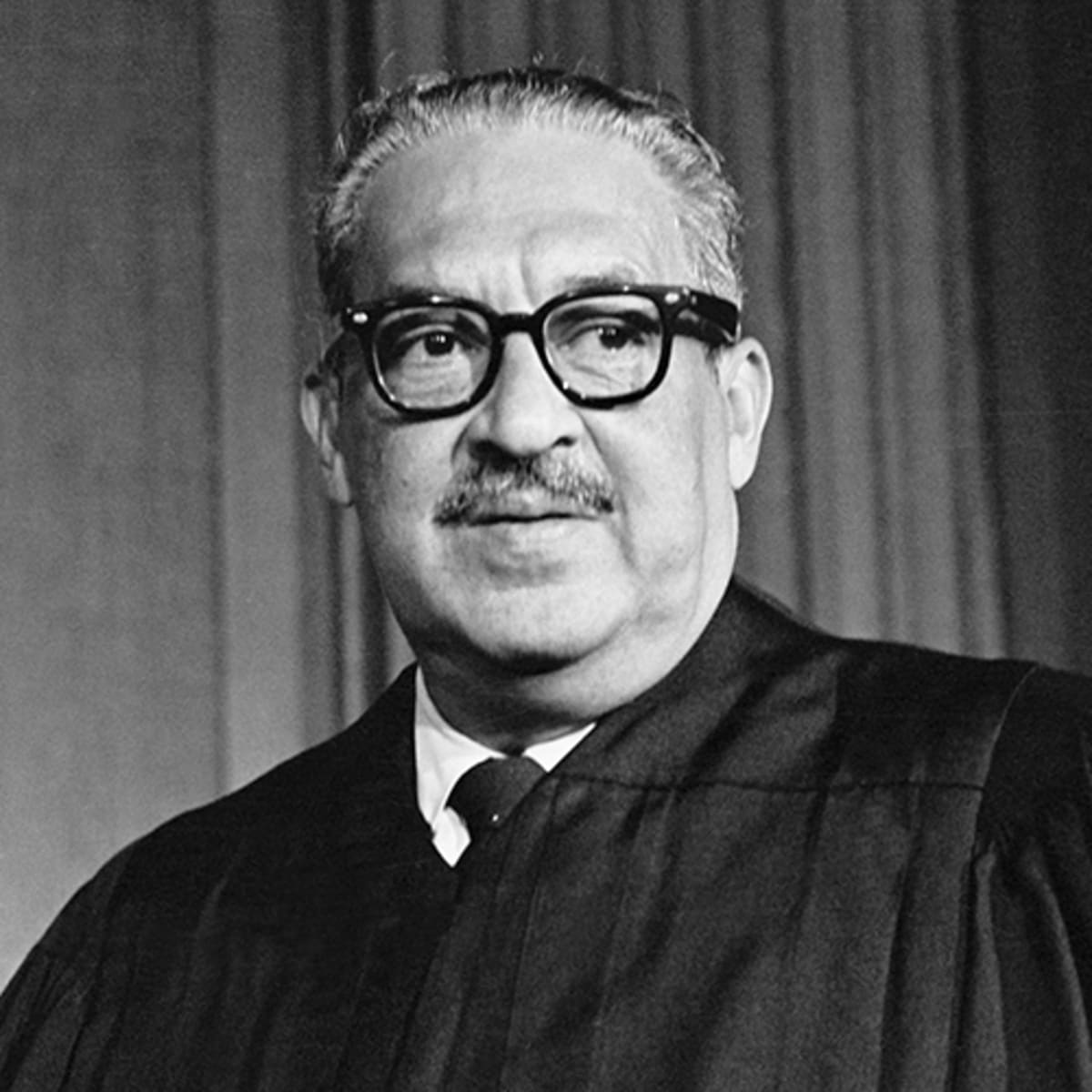
Thurgood Marshall was an African American lawyer and civil rights activist who served as Associate Justice of the Supreme Court of the United States from October 1967 until October 1991; the Court’s first member of African American descent.
As an attorney, Thurgood succeeded in his landmark case before the U.S. Supreme Court, in Brown v. Board of Education (1954), which declared unconstitutional the racial segregation of people, and children in American public schools.
Legacy:
Some of Thurgood’s notable achievements include Smith v. Allwright [1944], in which the U.S. Supreme Court declared unconstitutional a Southern state’s exclusion of African American voters from primary elections; Shelley v. Kraemer [1948] involving state judicial enforcement of racial “restrictive covenants” in housing in the United States, and Sweatt v. Painter and McLaurin v. Oklahoma State Regents [1950] involving “separate but equal” facilities for African American professionals and graduate students in state universities – having won 29 out of 32 legal victories before the U.S. Supreme Court.
Thurgood played an important role at the NAACP, becoming the chief of NAACP Legal Defense and Educational Fund.
Thurgood’s tenure at the U.S. Supreme Court experienced a period of major ideological change.
Thurgood died aged 84 in 1993.
Rosa Parks: (February 4, 1913 – October 24, 2005)
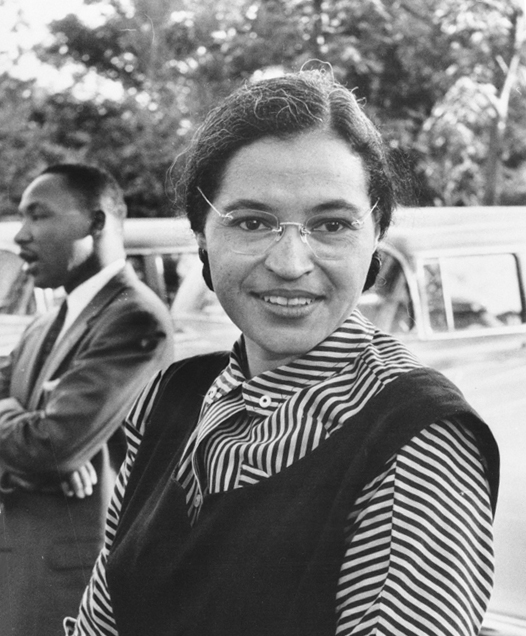
Rosa Louise McCauley Parks was an African-American civil rights activist whose non-compliance with the segregation on the U.S. public transport triggered the 1955–56 Montgomery bus boycott in Alabama; as part of the drive by the civil rights movement in the United States for social justice and equality under the U.S. constitution.
Growing up, established segregation laws meant Rosa, and African American children specifically, had to walk, when other children were bused to school in the United States.
Notably, Parks was not the first woman of African descent in the United States to refuse giving up her bus seat. A 15-year-old girl, Claudette Colvin had nine months prior, been arrested for the same offense; including several dozen other women of African American descent preceding Parks in the history of non-compliance with organised segregation on U.S public transit.
As the secretary of the local NAACP, and with the strength of the Montgomery Improvement Association behind her, Parks was able to galvanise resources and the publicity required, making it possible for the city of Montgomery to de-segregate public transit buses permanently.
On her death in 2005, Parks lay in state, in the rotunda of the U.S. Capitol, an honour reserved for individuals who had accomplished exceptional service in the United States.
Malcolm X: (May 19, 1925 – February 21, 1965)
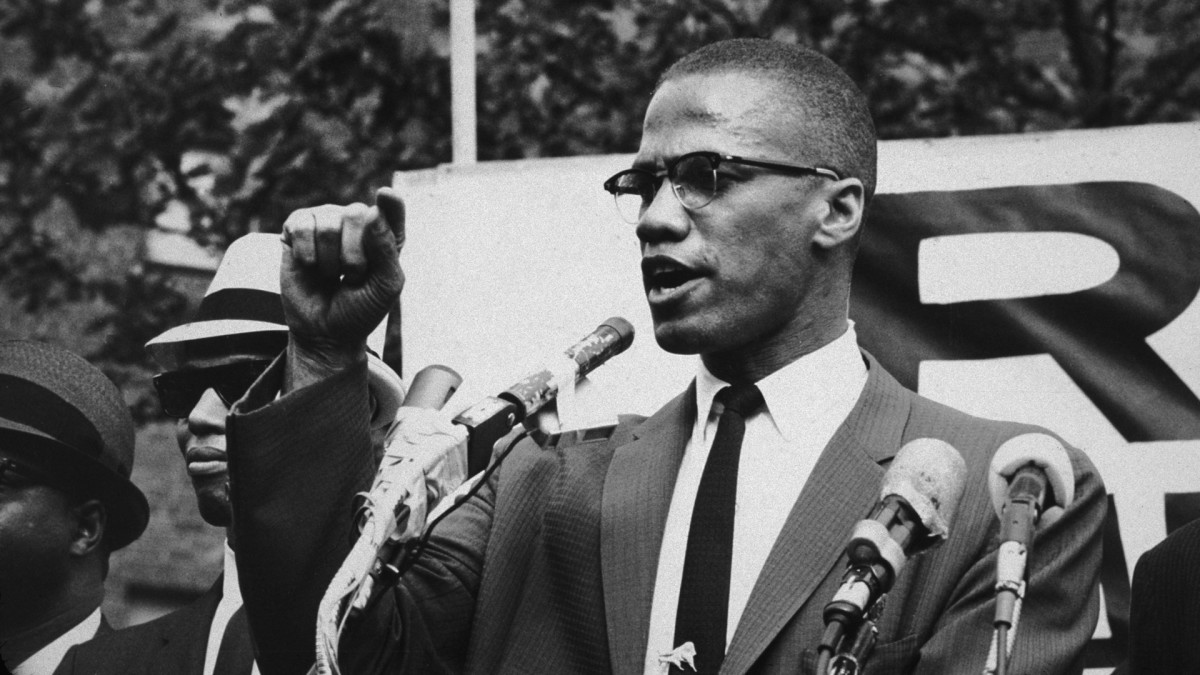
Malcolm X (born Malcolm Little); was an African American leader, civil rights activist and prominent figure in the Nation of Islam who articulated theories of African pride, Pan-Africanism and Black nationalism in the early 1960s.
Malcolm adopted the name ‘Malcolm X’ to embody his unknown African ancestral heritage and family name.
Malcolm X’s message on social justice was often in conflict with the message of the civil rights leader Martin Luther King, Jr. who advocated nonviolent strategies.
Following his death at the age of 39, Malcolm X’s philosophy, status, activism and articulation of identity and pride, social justice, and self-defense, became the ideological foundation of the Black Power movement that developed in the United States, in the 1960s and ‘70s.
Effect on African American’s and shift in ideology:
Malcolm X is widely regarded as a great orator, and largely credited with inspiring the ideological change of heavyweight champ’ Mohammed Ali, and later mentoring Louis Farrakhan who would later become the leader of the Nation of Islam.
Prior to his death in 1965, Malcolm X had visited the African continent approximately four times, giving interviews and meeting officials, in Nigeria, Sudan, Egypt, Ghana, Ethiopia, Tanzania, Guinea, Senegal, Algeria, Liberia, and Morocco.
In Nigeria, he was bestowed with the honorary Yoruba name Omowale – meaning, ‘the son who has returned home’.
Martin Luther King, Jr.: (January 15, 1929 – April 4, 1968)
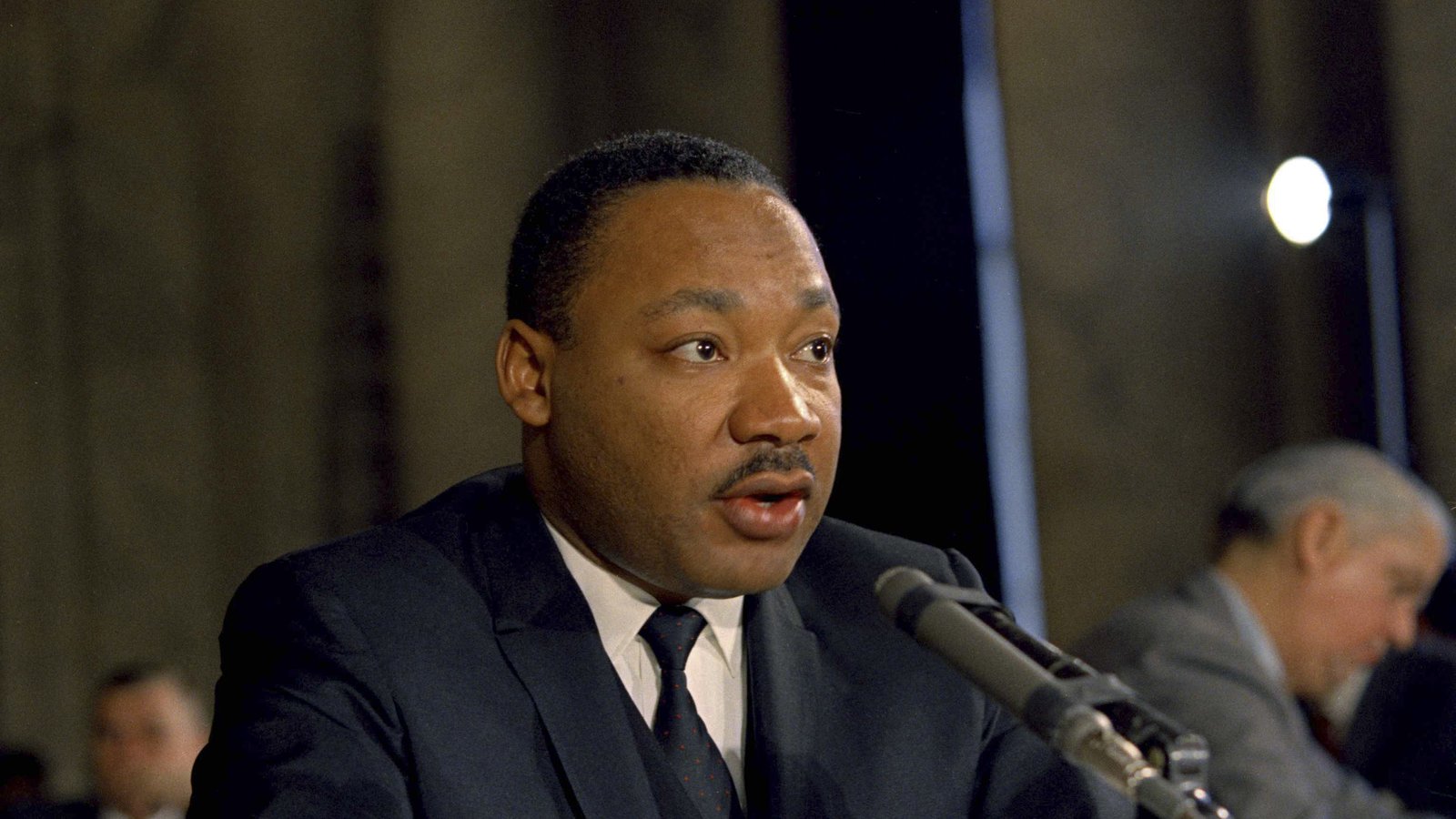
Martin Luther King Jr. was an African American Baptist minister who became one of the most charismatic leaders of the civil rights movement in the United States from the mid-1950s until his death in 1968. His leadership was central to the movement’s success, advancing a non-violent method of protest (notably inspired by his Christian beliefs) in ending the injustice of institutionalised segregation of African Americans in the United States; and organising the massive ‘March on Washington’ (1963), of approximately 250,000 people, where his ‘I Have a Dream’ speech was delivered.
Legacy:
King understood the power of transforming a local issue, and bringing it to nationally and internationally prominence. Although he downplayed his significance, King’s inspirational leadership, and his speeches, were important in shifting a local protest, the Montgomery bus boycott into a historic important event.
King’s advocacy for civil rights, through nonviolent means (vigils, sit-ins, and protest marches) changed national opinion, appealing to the conscience of all Americans, and helped develop an allegiance of Americans across the aisle, receiving crucial support from both the J.F. Kennedy and Lyndon B. Johnson administration’s, and, resulting in the passage of the Civil Rights Act of 1964, and the Voting Rights Act of 1965.
King was awarded the Nobel Peace Prize in 1964.
Zora Neale Hurston: (January 7, 1891– January 28, 1960)
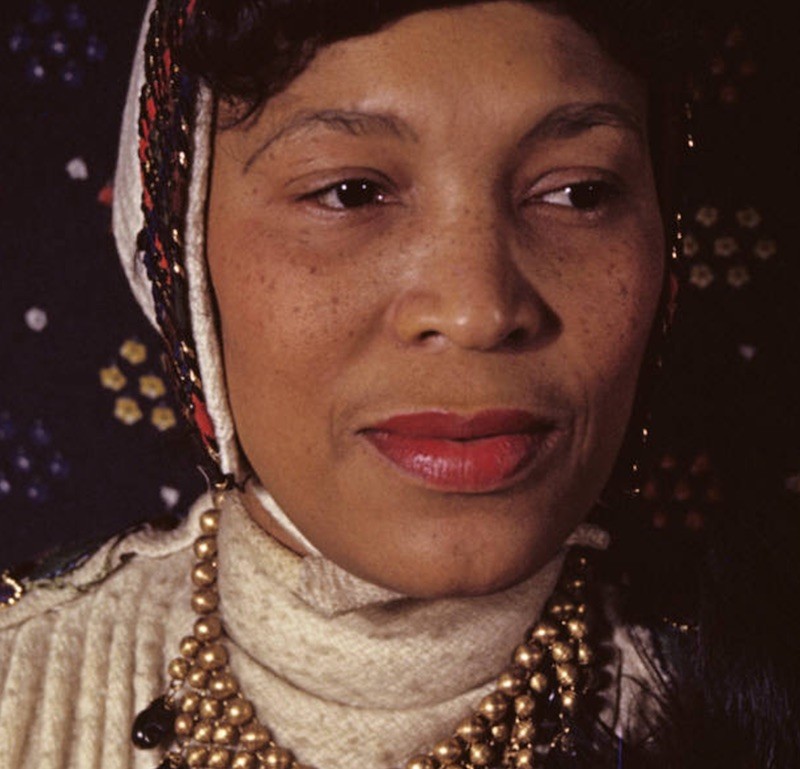
Zora Hurston was a world-renowned African American author and anthropologist. Hurston conducted anthropological and ethnographic research on African traditions and identity, publishing African-American and Caribbean folklore, interviewing Cudjoe Kazzola Lewis, of Africatown, Alabama, in 1927, and wrote fictions on the contemporary issues affecting black communities – becoming a central figure of the Harlem Renaissance.
The Harlem Renaissance was an overt contemporary movement and culture, that represented the idea of the New African American, who through intellect and the creation of music (from blues to a new form of jazz poetry), art, and literature such as modernism, could challenge the endemic prejudice and stereotypes in the United States, promoting liberal or socialist politics, and racial/social integration.
Zora Hurston, and members of the Harlem Renaissance used literature, music and art to demonstrate their scholarly intellectual prowess, humanity and advocacy for egalitarianism.
The corpus of Hurston’s work, her journals/legacy on race theory, cultural identity and social anthropology is celebrated at the annual Zora Festival.
Oprah Winfrey: (January 29, 1954 – Present)
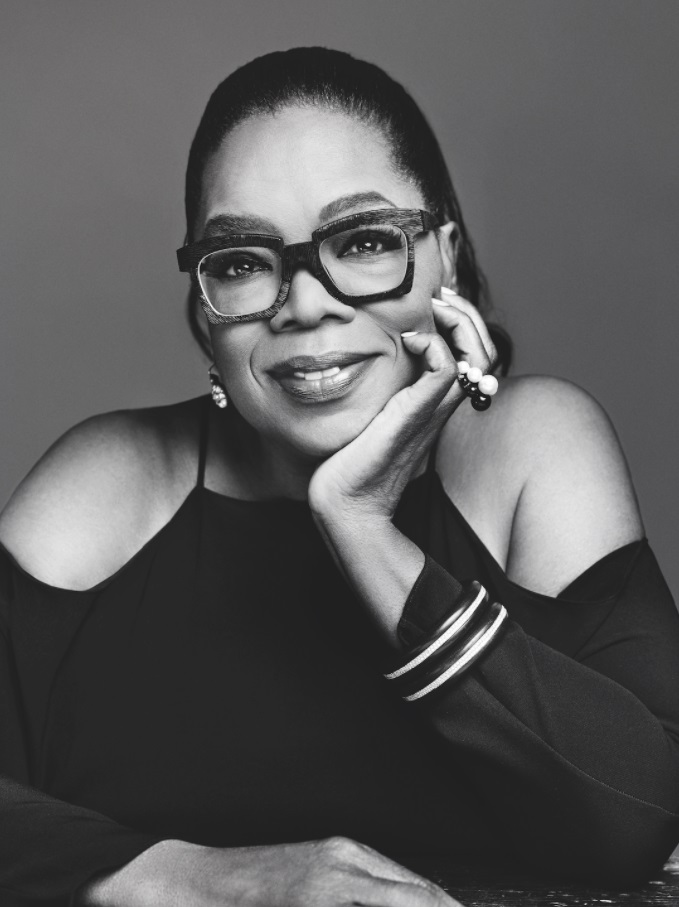
Oprah Winfrey is a savvy African American television producer, actress, author, entrepreneur and philanthropist, whose syndicated daily talk show, The Oprah Winfrey Show, was the highest-rated television program of its kind in the history of the United States.
Politics and influence:
While promoting his book The Audacity of Hope, Winfrey encouraged then-Senator Barack Obama to campaign and run for the president of the United States. Winfrey’s endorsement of Senator Barack Obama arguably influenced the developments of the 2008 presidential campaign and secured Barack Obama the presidency.
Philanthropy:
Oprah has lent her voice to countless charitable causes, including the establishment of Oprah’s Angel Network, supporting charitable initiatives globally. In 2007 Winfrey opened a $40 million state-of-the-art school in South Africa, enrolling an estimated 450 pupils, and opting to teach a class remotely at the school.
Oprah’s advocacy encompasses social issues, such as awareness on child abuse, and has received several honours and recognitions for exceptional service, including the Jean Hersholt Humanitarian Award from the Academy of Motion Picture Arts and Sciences, the Presidential Medal of Freedom, the Cecil B. DeMille Award (a Golden Globe for lifetime achievement) and is a Kennedy Center honouree.
Oprah has published several notable books, with the most recent including The Path Made Clear: Discovering Your Life’s Direction and Purpose (2019) and What Happened to You?: Conversations on Trauma, Resilience, and Healing (2021; Oprah Winfrey & Bruce D. Perry).
Barack Obama: (August 4, 1961 – Present)
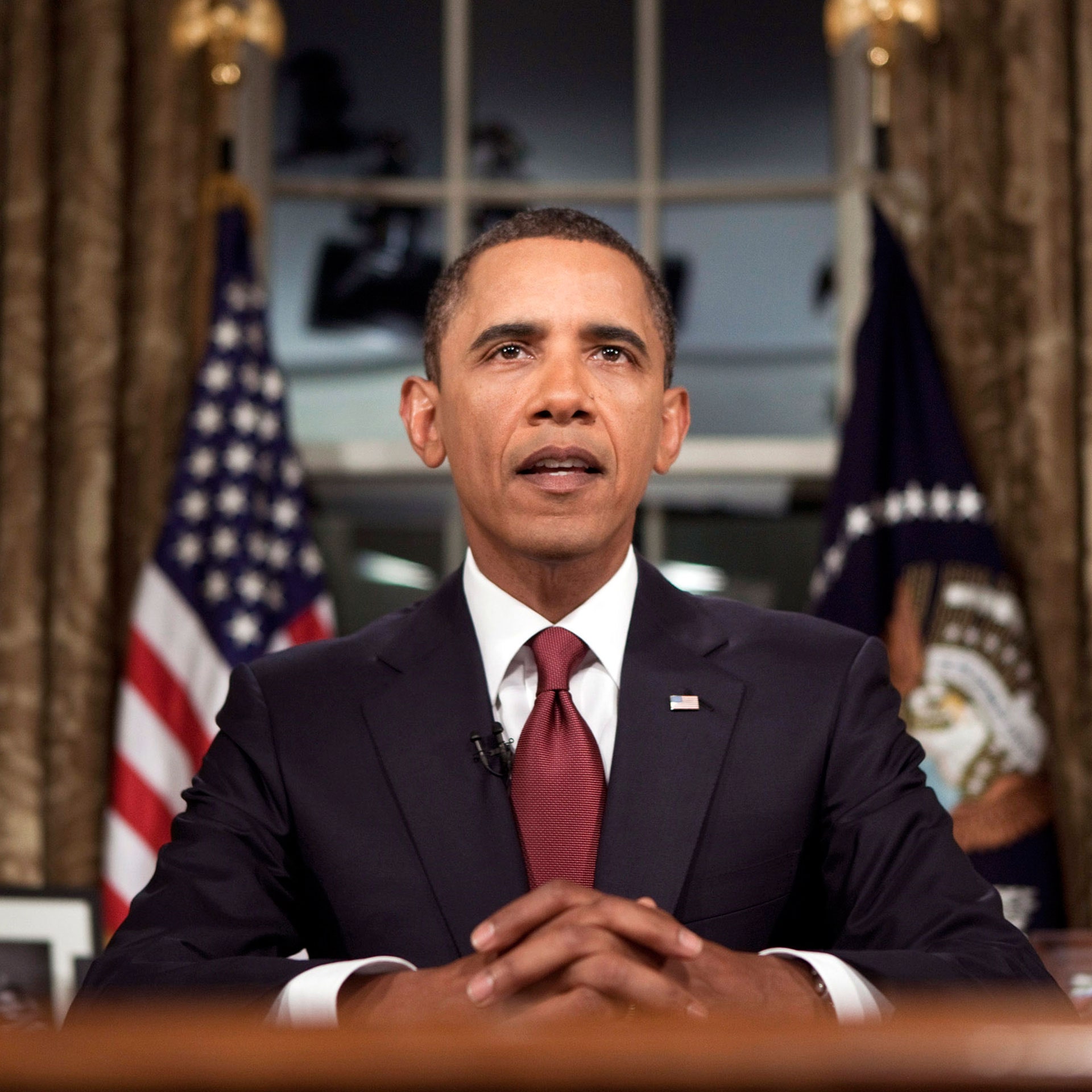
Barack Obama served as the 44th President of the United States (between 2009–2017); and the first African American to hold the office.
As a trained lawyer, and author, Obama reasoned in constitutional law terms; giving him a sound grounding for his scholarly perspectives, mastery of syntax, oratory and delivery of speeches.
Obama used his words to reassure the country on so many occasions, notably during times of crises, and the endemic mass shootings that afflicted the United States during his presidency.
Obama was a skilled policymaker with a remarkable legacy of signing many landmark bills into law, including the Affordable Care Act (ACA or “Obamacare”), without the requirement for a public health insurance option; the Dodd–Frank Wall Street Reform and Consumer Protection Act – an Act to enhance the financial stability and integrity of the United States financial markets by establishing accountability and transparency in the financial system; and, the American Recovery and Reinvestment Act – which analyst credit averted a depression and pulling the United States economy back from the Great Recession.
Under his presidency, The Deferred Action for Childhood Arrivals (DACA), a precursor to the DREAM Act, allowed undocumented individuals who were brought into the United States as children to receive a renewable two-year period of deferred action from deportation, and becoming eligible for employment and a work permit in the United States.
In 2014, President Obama established ‘My Brother’s Keeper Alliance’ (MBK), an organisation positioned to research, understand and resolve the persistent opportunity gaps faced by boys and young men of ethnic minority and African American backgrounds, and to ensure they reach their full potential. MBK now works with chapters globally.
During his farewell address President Obama asked for ‘unity and enthusiasm’ to counter social and economic injustice, prejudice and the pervasive broken, divisive politics in the United States, verbatim:
“I am asking you to hold fast to that faith written into our founding documents; that idea whispered by the enslaved and abolitionists; that spirit sung by immigrants and homesteaders and those who marched for justice; that creed reaffirmed by those who planted flags from foreign battlefields to the surface of the moon; a creed at the core of every American whose story is not yet written: Yes, we can. Yes, we did.”
In 2009 he was awarded the Nobel Peace Prize “for his work in strengthening international diplomacy and cooperation among peoples.”
-
-
AuthorPosts
You must be logged in to reply to this topic.




